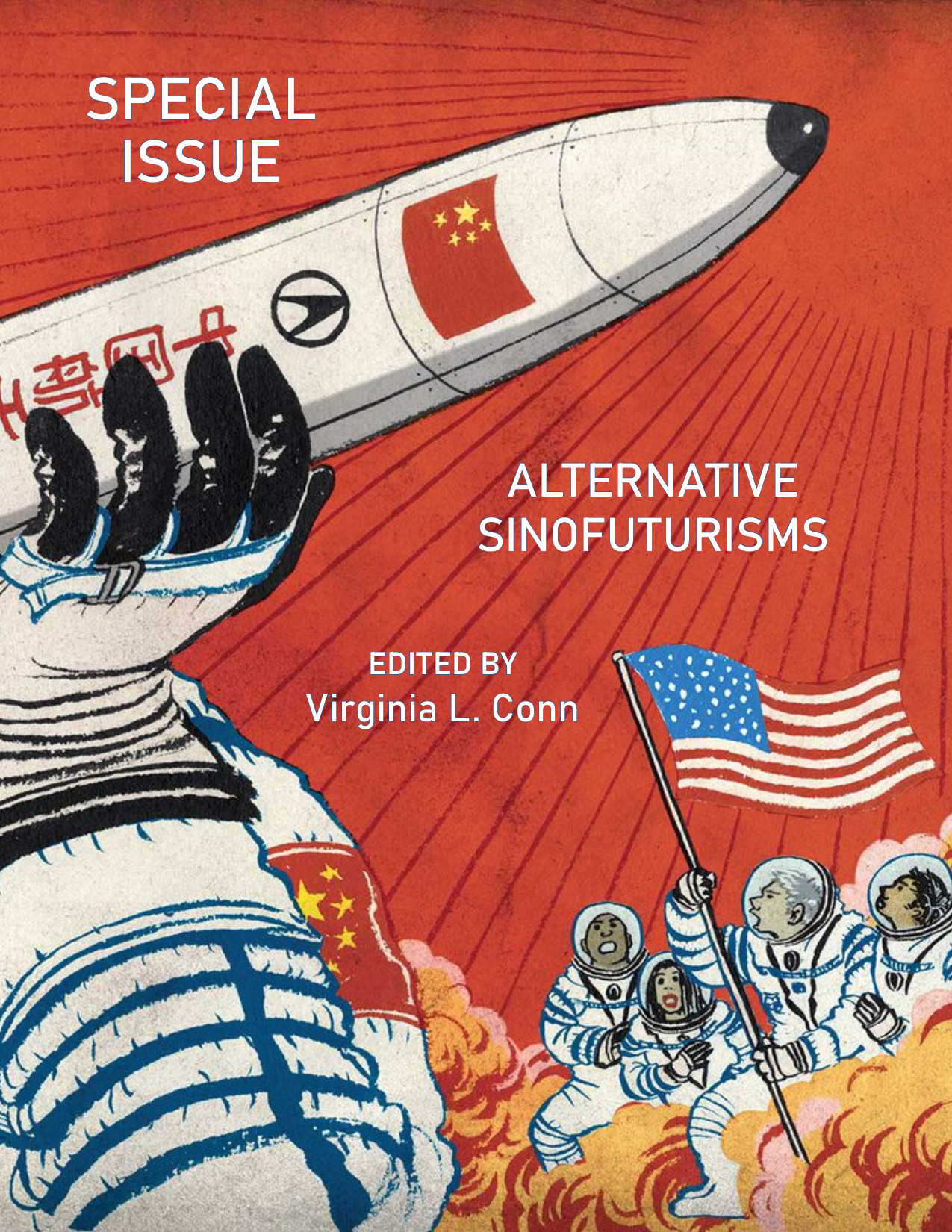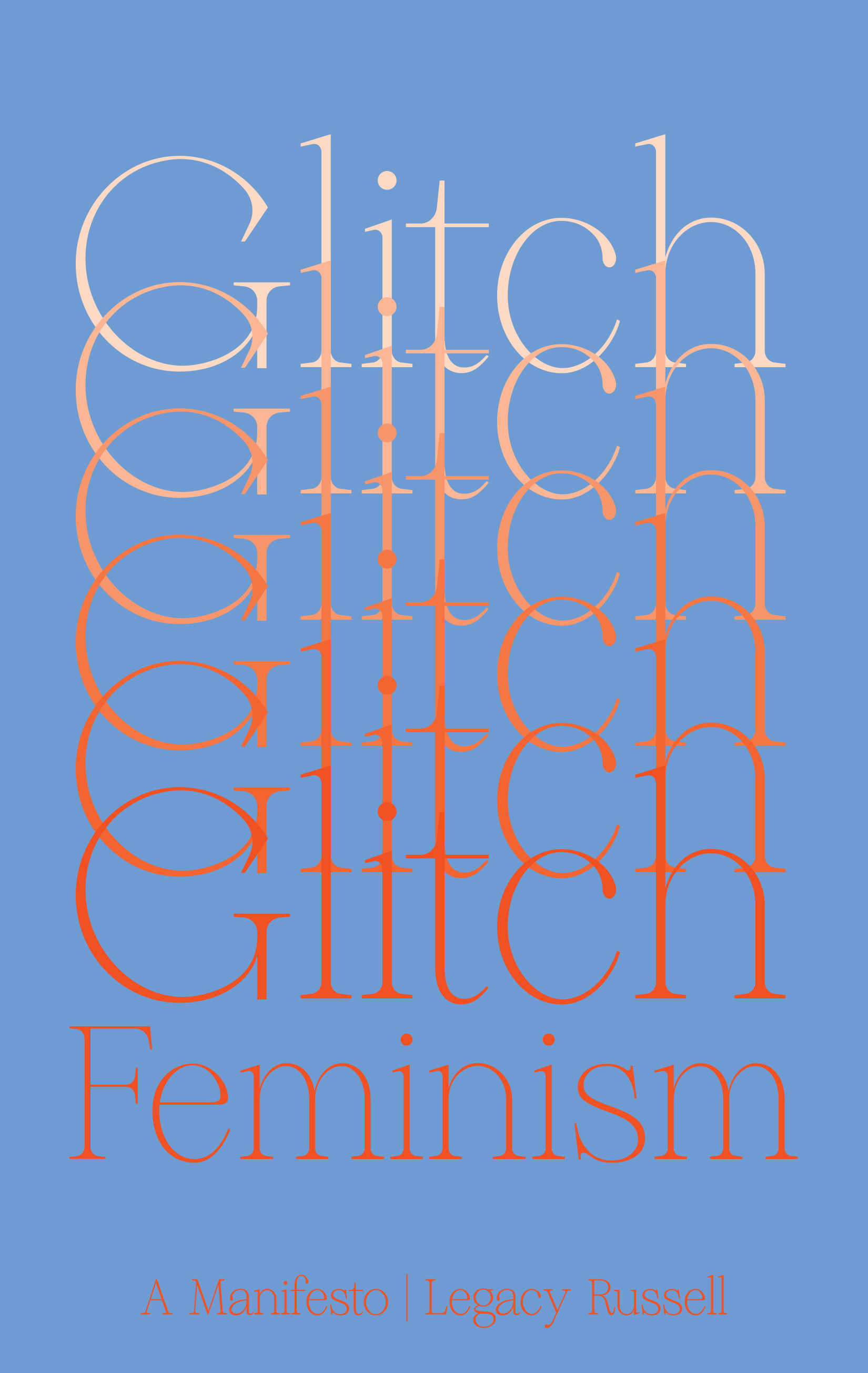SFRA Review, 50(2-3): Alternative Sinofuturisms (2020)
Filed under journal | Tags: · china, futurism, literary criticism, literature, science fiction, sinofuturism, technology

“The idea for this special issue developed out of a workshop organized by Dino Ge Zhang as part of the WuDaoKou Futurists collective, a collective aimed at decentering Sinofuturism from its Western articulations. The workshop, “Alternative Sinofuturisms,” already presupposes Sinofuturism as a venue for alterity and retains a space for various approaches and understandings of who and what is being foregrounded. Centralized in Beijing but held online with invited speakers from four different continents, the workshop was organized around a series of provocations, most of which are included in this issue.”
Contributors: Loïc Aloisio and Gwennaël Gaffric, Virginia L. Conn, Gabriele de Seta, Margaret A. Fisher, Carmen Herold, Amy Ireland, Lyu Guangzhao, Astrid Møller-Olsen, Yen Ooi, Frederike Schneider-Vielsäcker, Molly Silk, Mitchell van Vuren, Dino Ge Zhang.
Edited by Virginia L. Conn
Publisher Science Fiction Research Association, Spring-Summer 2020
Creative Commons BY-NC-ND 4.0 License
ISSN 2641-2837
pages 66-181
Vasulka Kitchen Cooking Reader (2020) [Czech]
Filed under book | Tags: · archive, art history, conservation, digital art, media, media art, media theory, new media art, preservation, technology, video, video art

“This collection of texts is being published either relatively early, or perhaps a bit late: about one year after the colloquium Art Works from the Digital Era in Galleries and Museums. Since then, unexpected events have altered our course, reframing our thinking about the overlap between art, time, entropy, duration and disappearance, and perhaps adding a greater sense of urgency than it had one year ago.
The colloquium was organized to celebrate the the first anniversary of the opening of the Vašulka Kitchen Brno: Center for New Media. The organizers discussed topics with colleagues from the Brno House of Arts and the National Film Archive in Prague, hoping to promote thinking about the state and fate of art works of an “unstable“ nature, especially within the context of Czech collections, galleries, and museums. The objective was to establish contact, and to potentially cooperate with similar initiatives in Central Europe. During the two‑day meeting, the contributions mostly touched on the orientation of artistic and expert initiatives and institutions which were already focused on this issue, or were planning to turn their attention to it. In addition to contributions from Czechia, Vasulka Kitchen also welcomed contributors from the Netherlands, Germany, France, Norway, Slovakia, Hungary, Poland and the United States, who shared their experiences of and opinions on the topic.
This publication is dedicated to the memory of Woody Bohuslav Vašulka.”
With English introduction and abstracts.
With contributions by Flóra Barkóczi, Dušan Barok, Martin Blažíček, Vannevar Bush, Lenka Dolanová, Kateřina Drajsajtlová, Jakub Frank, Joey Heinen, Jana Horáková, Erkki Huhtamo, Vít Janeček, Michal Klodner, Barbora Kundračíková, Štěpán Miklánek, Gustav Metzger, Anna Olszewska, Kryštof Pešek, Miklós Peternák, Pavel Sikora, Matěj Strnad, Barbora Šedivá, Miloš Vojtěchovský, Peter Weibel, Gaby Wijers, and Gene Youngblood.
Edited and with an Introduction by Miloš Vojtěchovský
Publisher Vašulka Kitchen Brno, Brno, October 2020
Creative Commons BY-NC-SA 4.0 License
ISBN 9788090776333
253 pages
Review: Lukáš Pilka (Flash Art CZ/SK, 2021, CZ).
Book presentation (video, 13 min, Czech)
Colloquium
Publisher
PDF (77 MB, updated on 2020-11-28)
Wiki (added on 2023-6-7)
Legacy Russell: Glitch Feminism: A Manifesto (2020)
Filed under book | Tags: · body, cyberfeminism, feminism, gender, glitch, internet, race, technology, women

“Simone de Beauvoir said, “One is not born, but rather becomes, a woman.” The glitch announces: One is not born, but rather becomes, a body.
The divide between the digital and the real world no longer exists: we are connected all the time. What must we do to work out who we are, and where we belong? How do we find the space to grow, unite and confront the systems of oppression? This conflict can be found in the fissures between the body, gender and identity. Too often, the glitch is considered a mistake, a faulty overlaying, a bug in the system; in contrast, Russell compels us to find liberation here. In a radical call to arms, Legacy Russell argues that we need to embrace the glitch in order to break down the binaries and limitations that define gender, race, sexuality.
Glitch Feminism is a vital new chapter in cyberfeminism, one that explores the relationship between gender, technology and identity. In an urgent manifesto, Russell reveals the many ways that the glitch performs and transforms: how it refuses, throws shade, ghosts, encrypt, mobilises and survives. Developing the argument through memoir, art and critical theory, Russell also looks at the work of contemporary artists who travel through the glitch in their work. Timely and provocative, Glitch Feminism shows how an error can be a revolution.”
Publisher Verso, London, September 2020
ISBN 9781786632661, 1786632667
176 pages
Reviews: Rahel Aima (Bookforum, 2020), R.V. Campbell (The White Review, 2020), Johanna Marie Engemann (re:visions, 2020, DE), Ondřej Trhoň (Revue Prostor, 2020, CZ), Pauline Nguyen (Femme Art Review, 2021), Miranda Findlay (Feminist Formations, 2021), O.K. Keyes (Studies in Art Education, 2021), Hannah Curran-Troop & Annelot Prins (Eur J Cult Stud, 2022), Zoe Hurley (Postdigital Sci & Edu, 2023), Ondřej Trhoň (Artalk.cz, 2023, CZ).
Interviews with author: Mikkel Rosengaard (Bookforum, 2020), Ben Davis (artnet, 2020), ATM (2020), William Kherbek (Berlin Art Link, 2020).
PDF (updated on 2023-10-23)
Comment (0)
